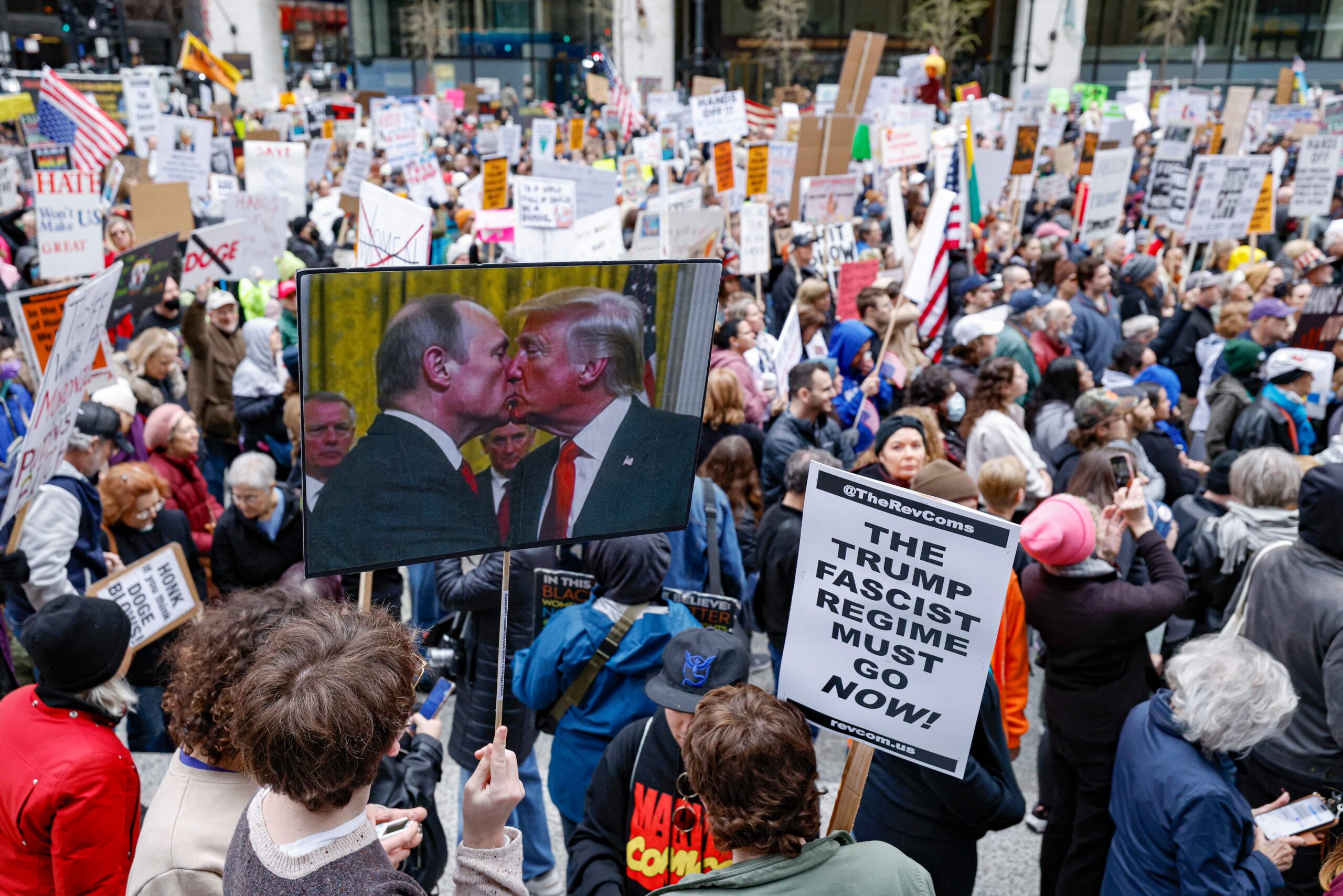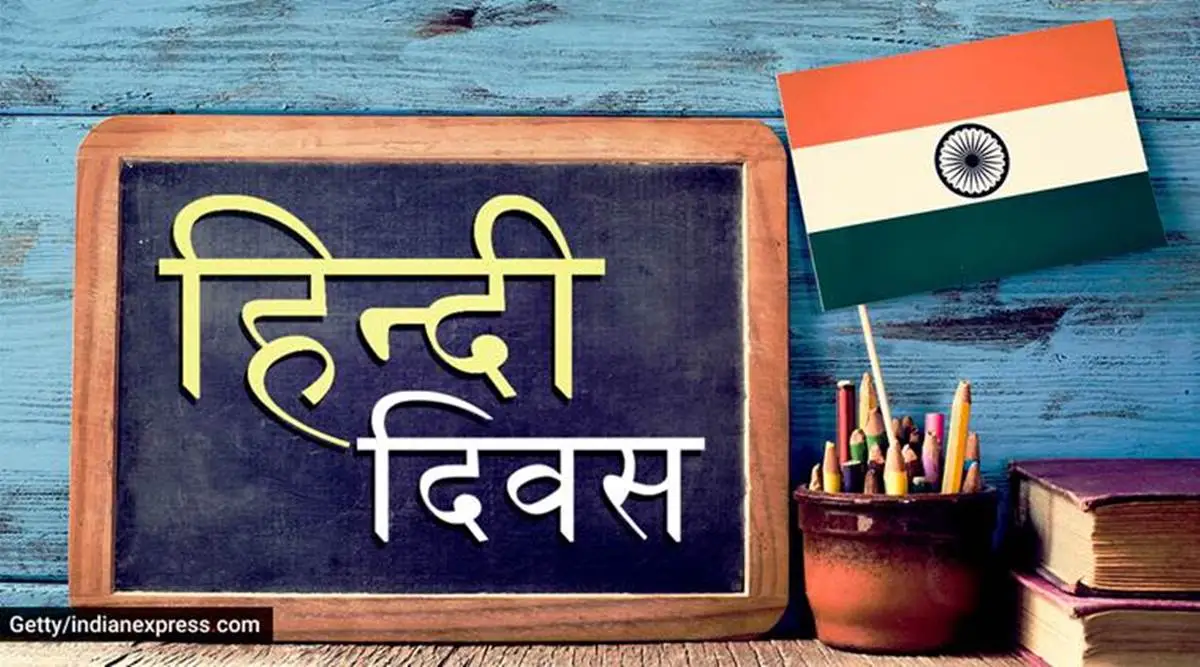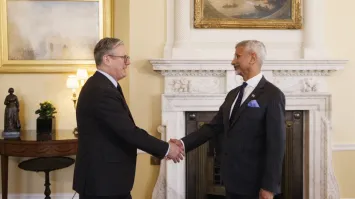WASHINGTON, D.C.: Tens of thousands of demonstrators took to the streets across the United States on Sunday in a sweeping wave of anti-Trump protests, marking a powerful resurgence just two weeks after a similar national mobilization. From San Francisco to Washington D.C., the rallies echoed with urgency, outrage, and concern over what protesters described as civil rights violations, unchecked executive power, and authoritarian tendencies under former President Donald Trump.
More than 700 protests were organized under the banner of advocacy group 50501, making it one of the most widespread decentralized demonstrations since Trump’s return to political prominence. Though turnout in major cities like New York and Chicago was slightly lower than the April 5 protests, organizers emphasized the movement’s expanding geographic reach—from Jacksonville, Florida, to Anchorage, Alaska.
‘Democracy, Not Dictatorship’: Small Towns Join Nationwide Uprising
While larger cities saw smaller crowds than previous demonstrations, smaller towns and cities made a notable mark. In places like Bisbee, Arizona, and Anchorage—where protesters endured freezing temperatures—marchers held signs reading “Democracy, Not Dictatorship” and “No Kings, No Trump.”
Chants of ‘Shame!’ in Washington, D.C. as Deportation Sparks Outrage
In the nation’s capital, demonstrators gathered outside the White House before marching to the Department of Homeland Security. Their primary grievance: the deportation of Kilmar Armando Abrego Garcia, a Maryland man sent to El Salvador despite a court ruling in his favor.
Chants of “Shame!” rang through the streets as protesters waved upside-down American flags. “It feels like we’re past the Constitution,” said immigration rights advocate Elena Rodriguez, echoing the sentiment at dozens of protests nationwide.
Garcia’s Case Becomes National Symbol
Garcia’s deportation became a unifying symbol of alleged due process violations. In Chicago, activists distributed flyers featuring his image, warning that “he’s the canary in the coal mine.” In Brooklyn, Julia Fine called the Salvadoran prison Garcia now resides in “Guantánamo without cameras.”
Immigrant Families Rally in NYC Amid ICE Crackdown Fears
In New York City’s Washington Square Park, hundreds gathered with placards reading “First they came for the immigrants…” and “No ICE in our state.” The mood was tense but determined. “I’m a citizen,” said Aaron Burk, “but the way things are going, anyone who looks like me is fair game.”
Jacksonville Protest Highlights LGBTQ+ and Environmental Concerns
In Florida, protesters addressed a broad spectrum of issues—from the rollback of LGBTQ+ protections to the weakening of the Endangered Species Act. “They’re cutting protections for people and the planet,” said Sara Harvey, holding a rainbow flag and a sea turtle cutout.
Tesla and SpaceX Protested for Role in Federal Job Cuts
In a unique twist, rallies in Austin and Palo Alto targeted Tesla dealerships and SpaceX offices. Demonstrators accused Elon Musk of backing Trump-era policies that slashed jobs in education, science, and environmental protection. “He’s playing kingmaker while people lose their livelihoods,” said Tanya Boon, a former EPA employee.
Economic Anxiety and Veteran Issues Dominate Midwest Rallies
In Chicago, signs reading “Hands off Social Security” and “Veterans Deserve Better” highlighted economic concerns. Fio Holloman, 22, said her Vietnam veteran father had lost disability benefits. “It’s not just about Trump—it’s about Trumpism as policy,” she said.
Historic Reenactment Turns into Protest in Concord
In Concord, Massachusetts, a Revolutionary War commemoration turned into a symbolic protest against authoritarianism. Protesters in colonial garb held signs like “Stop Fascism Now.” “Our forefathers fought tyranny—why wouldn’t we?” asked local historian Mark Aldrich.
Boston Protesters Accuse Trump of Bypassing Rule of Law
At Boston Common, hundreds condemned Trump’s alleged flouting of court rulings and civil liberties. “This is what fascism looks like,” said teacher George Bryant. Speakers urged the Department of Justice to act “before it’s too late.”
Protests as Emotional Release, Voter Mobilization
For many, the protests were as much about healing as they were about resistance. In Cincinnati, Mayor Aftab Pureval led chants of “Vote them out!” Social worker Andrea Mallory called the protest “group therapy.” “I came here to scream. To grieve. To remember I’m not alone,” she said.
Organizers distributed voter registration forms and “Know Your Rights” guides, hoping to turn public anger into political action ahead of the 2024 elections.




